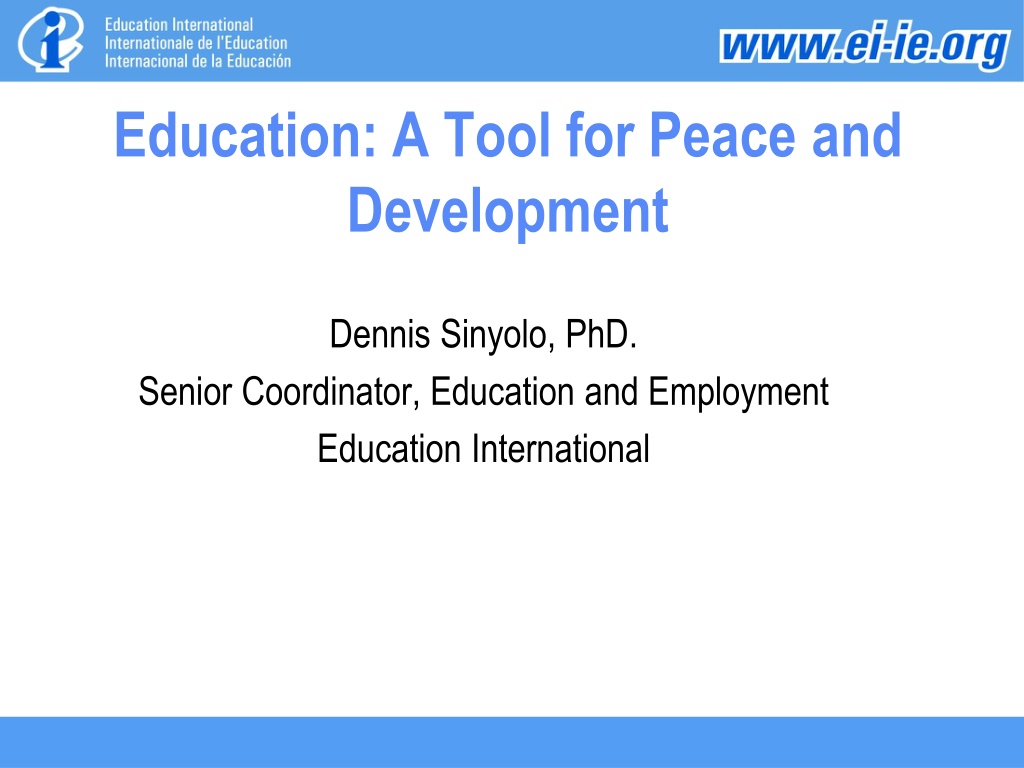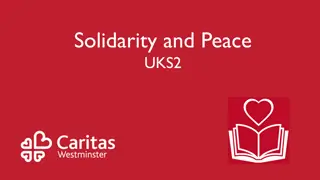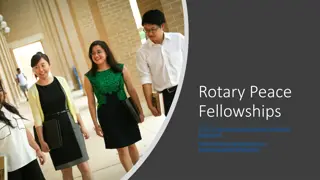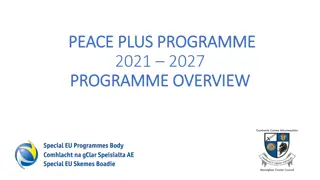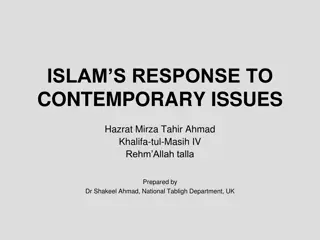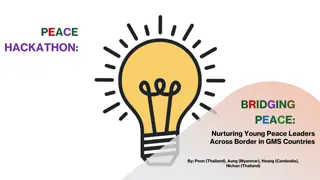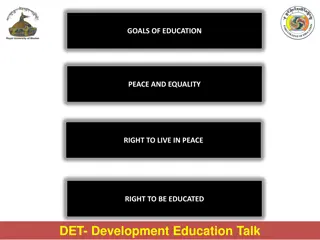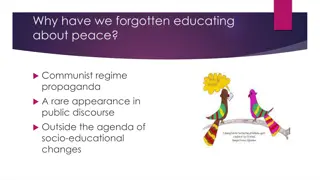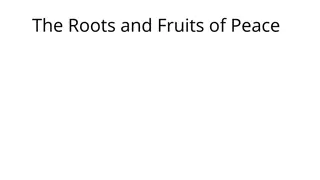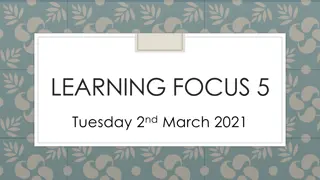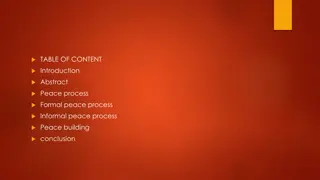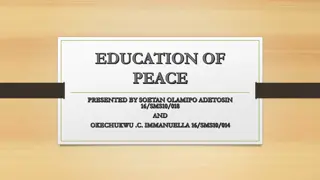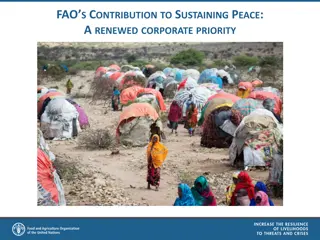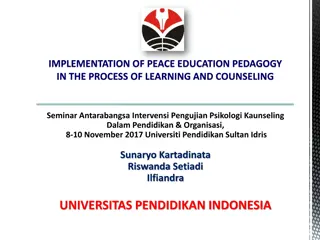The Impact of Education on Peace and Development: Challenges and Solutions
Education plays a crucial role in transforming lives, addressing societal issues, and fostering peace and development. While it is a powerful tool, challenges such as lack of access, teacher shortages, and declining status of educators need to be addressed for education to effectively contribute to a peaceful and developed society.
Download Presentation

Please find below an Image/Link to download the presentation.
The content on the website is provided AS IS for your information and personal use only. It may not be sold, licensed, or shared on other websites without obtaining consent from the author. Download presentation by click this link. If you encounter any issues during the download, it is possible that the publisher has removed the file from their server.
E N D
Presentation Transcript
Education: A Tool for Peace and Development Dennis Sinyolo, PhD. Senior Coordinator, Education and Employment Education International
Outline 1. Why is education so important? 2. Can education alone solve all societal problems? 3. The status of teachers worldwide: better, the same or worse than ever? 4. Looking into the future: with optimism?
Why is education so important? Education is the most powerful weapon which you can use to change the world. (Nelson Mandela)
Education transforms lives Source: EFA Global Monitoring Report (GMR)
Can education alone solve all societal problems? Youth unemployment Intolerance Racism Xenophobia Holistic approach key to addressing social and developmental issues education, policy, legislation, societal response
Education remains out of reach for many 58 million children of primary going age remain out of school 69 million adolescents are out of school 774 million adults cannot read and write (nearly 2/3 of them women) 168 million children are in child labour 250 million children are not learning the basics Source: 2013/14 GMR & ILO
If you can read this, thank a teacher!
But many children around the world do not have teachers 3.4 million more primary teachers and 5.1 million lower secondary teachers will be needed to provide all children with basic education by 2030 (UIS) Many children in developing countries learn in overcrowded classrooms without basic resources
Declining status of teachers? Recruitment of unqualified teachers: a major challenge Low salaries and poor/deteriorating conditions of service for teachers Casualisation of the teaching profession through short-term contracts (less pay; no job security; no social security ) Accountability mechanisms based on competition rather than collaboration among teachers and schools Linking teacher performance and remuneration to standardised assessments and its impact on the school curriculum and learners Deskilling and loss of professional status for migrant teachers Safety for teachers and students
What can be done? Make teaching an attractive and first choice profession Adopt a life-long learning approach to teacher education Governments must invest in initial teacher preparation, recruit and deploy female and male teachers in such a way that every child is taught by a qualified teacher Governments need to institute induction programmes for all newly- qualified teachers and to invest in in-service training for all teachers and school leaders Governments and employers should improve the salaries and conditions of service for all teachers Governments should ensure institutionalised social dialogue (CB), guarantee freedom of association and the right to organise
International solidarity key Educators must speak with one voice and act together to defend and promote quality education for all, their professional status and working conditions. An injury to one is an injury to all!
Looking into the future : with optimism? Future development goals after 2015 must have education and teachers at their core The right of every child, youth and adult to quality education must be guaranteed by the state through appropriate policy, legislation and adequate funding All governments must ensure that all learners are taught by qualified, professionally-trained, motivated and well- supported teachers
Thank you! dennis.sinyolo@ei-ie.org
